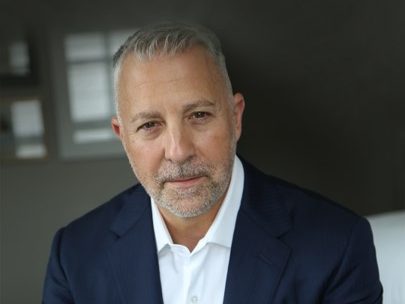How to Preserve Family-Run Real Estate Companies
These third- and fourth-generation-led real estate companies shared the challenges and benefits of working with family members to run successful businesses.
By Samantha Goldberg

The panel at the Friedman LLP Real Estate Forum (left to right): Jason Muss, Muss Development; Joshua Muss, Muss Development; Brian Steinwurtzel, NGKF; Eric Gural, NGKF; Jeffrey Gural, NGKF
While running a family-owned business can be a challenge, learning how to work together and make the most of each person’s skill set can pay off for the company. Two prime examples shared their experiences at accounting and advisory firm Friedman LLP‘s Real Estate Forum on Nov. 16, explaining the challenges and benefits of working with family members, particularly in the real estate business.
Jeffrey Gural, chairman of Newmark Grubb Knight Frank, who started with predecessor company Newmark in 1978, spoke on a panel about transitioning the business to the next generation. He recalled how his father, Aaron, pushed him to join Newmark, where he himself was chairman for more than 40 years before passing away in 2009. Gural finally decided to join the company after a career in the construction industry, but the transition wasn’t always easy.
“In truth, it was very difficult working for my father. We didn’t get along at all; we didn’t agree on anything,” Gural said. He explained that his father was less willing to take the risks Gural wanted to pursue and often thought his deals were bad, but finally they found a way to work together: They divided up the business, with his father running the buildings he purchased and Gural running his own buildings. “After that, we didn’t fight anymore,” Gural said.
NGKF now has a third-generation leader of the company in the form of Jeff Gural’s son Eric, who serves as executive managing director, and nephew Brian Steinwurtzel, who serves as managing director.
Another panelist and third-generation leader was Joshua Muss, president of Queens, N.Y.-based Muss Development. Joshua’s grandfather, Isaac, founded the family company in 1906 and had 11 children, five of which went into development, including Joshua’s father, Hyman. As a result, Joshua grew up “seeing real estate at the table,” he said. “It was always the overwhelming intention to become part of the real estate entity.”
When Muss graduated from law school, he decided to join his father, brother and uncle at Muss Development. Muss described his relationship with his father as “terrific,” even though they didn’t always agree. Like Gural, Muss said he was willing to take more risks than his father, who grew up during the Great Depression.
“The first five years, I thought that everything he did was right; the next five years, I figured everything he did was wrong; and then I figured out what was good and what was bad,” he observed. “I learned by example. To be in real estate development, you don’t get a degree from college or law school, you get a degree from experience. That in itself is an important component of being involved in a real estate family.”
His son Jason is now principal of Muss Development, making for a fourth-generation leadership in the company, and Muss says as good as his relationship with his father was, his relationship with his son has “even been better.”
Risk Aversion Spans Generations
Although they’re of the younger generation, both Jason Muss and Eric Gural spoke of how they are more risk averse. Eric Gural got into the business in 1991, when tenants were asking to take less space and turning in their keys, he said. He also spent more time with his grandfather, who was also more risk averse. Steinwurtzel had a different experience, coming into the business in the early 2000s when real estate was doing better and working more with Jeff Gural, who was more willing to take risks.
But despite slightly different views, Eric Gural and Steinwurtzel work together to run the business by “focusing on who has what kind of skills and who likes to do certain types of work better than the other,” Gural said. Unlike with his father, Gural said he and Steinwurtzel don’t divide the buildings up. For each project, they decide who will run the building “based on skill set and who has the time to do it,” he said.
Generally, Gural likes to do more on the leasing side, while Steinwurtzel prefers the acquisitions side. “But that doesn’t mean we don’t work together,” he added.
Steinwurtzel noted that they spend a lot of time talking to their family members about their roles and what the business is, including with the other eight members of their generation.
Jason Muss, who joined Muss Development right out of law school, said the advantage of joining a family business is “before you go in, you kind of know the lay of the land as far as how to run the properties, but there’s nothing like actually experiencing (working with tenants).” In terms of risk aversion, he added that he’s learned from his father that you need to “strike a balance between responsibly growing and taking too many risks that would jeopardize everything you’ve built.”
Joshua Muss added that, unlike his son, he’s more interested in building than managing, which is “so much more risky than when you’re managing,” but that Jason’s tendency to be more risk averse is what makes him a good manager of the company.
Strategic Decisions Take Compromise
Growth was still stressed as an important component of the family business, as Steinwurtzel said, “there’s a need to grow” as the family expands in order for their to be enough of the business to go around, and discussions around buying or selling properties often occur between the family members.
Despite the back and forth dialogue, real estate can be an “easy business when you cut through it,” Jeff Gural said, adding that there are three things you have to do: live long, never sell and don’t have too much debt. “If you follow those three things and they fall into place, you’re in pretty good shape.”
Being an engineer by trade, Gural said his preference for holding onto properties is analytical, seeing that the richest people in New York never sell, so he said to NGKF CEO Barry Gosin:”why don’t we follow that.”
Joshua Muss echoed this sentiment, adding that “it’s tempting to sell, but it’s also tempting to hold on,” although you need to have the right people in charge of running the property to hold onto properties.
Having the Right Partners is Key
Deciding whether to enter joint ventures on deals was also discussed, with both Jeff Gural and Josh Muss saying how business has changed so much since they started in real estate that it’s almost necessary to seek out partners.
“When my father and I started doing this, you could buy a building for $10 million, the bank would lend $6 or $7 million and we’d call two friends to put in $1 million each. Now that building’s worth $300 million and you’re not calling two or three friends to put in $30 million a piece, so you’re almost forced to partner with a fund or a REIT,” Gural said.
“Times have changed,” Muss added in agreement. “When you’re a mom and pop like as we are…and you try to build only with your own money and you have a friendly bank, that’s fine, but times have changed, which is one of the reasons succession is so important because I’m not as smart in new things, in new financing,” he said. “It’s better not to be dependent on corporations or the fiduciary responsibilities of other companies.”
The younger generation agreed, with Steinwurtzel saying, “it’s the reality of doing larger deals these days.”
Although once you bring in private equity, “there are compromises that are made” because partners can have different needs or business plans,” Jason Muss added. That’s why it’s important to partner with people who are “aligned with our interests in terms of having time to manage a property properly and add value, and not doing it in a way that has short-term, disruptive consequences,” he added.
With these concerns in mind, these family businesses will now be focusing on any changes to their business in the new administration. While the firms have enjoyed the low interest rate environment and “the demand for our product in New York is hot—it’s by far the safest big city—change is coming,” Jeff Gural said. “Whether it’s Donald or four years from now…it’s somebody else, I just feel in my bones that we can’t go on like this where it’s such a tiny piece of the population that’s doing extremely well and everybody else is struggling. It’s going to be interesting.”







You must be logged in to post a comment.